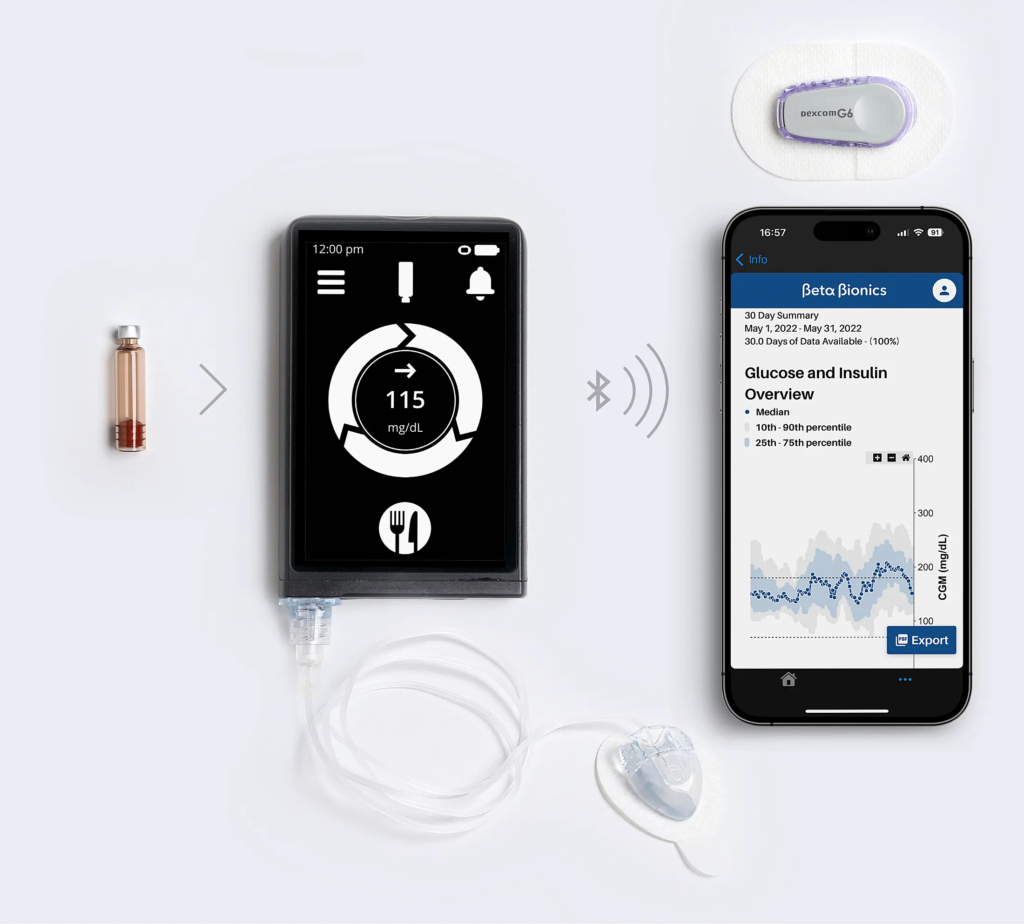Contributor: Krishna Chavada, PharmD Candidate 2024, PCOM Georgia School of Pharmacy
Based on self-reported data, 1.3 million American adults have been diagnosed with Type 1 diabetes and use insulin. Maintaining blood glucose levels can become very difficult and it can become a burden to such patients’ lifestyle. To better manage such levels, automated insulin delivery systems were developed and have been lifesavers to persons with diabetes. Insulin pumps have become increasingly popular over time as a method to manage diabetes once placed under the skin. Throughout the day, the insulin the pump can give small doses of insulin as basal insulin, typically set up by your healthcare professional. The patient must enter in the amount of bolus, or mealtime, insulin is required based on their personal needs. The pump is typically the size of a deck of cards and typically doses are delivered more accurately with an insulin pump. Currently there are 6 insulin pumps that are recognized by the American Diabetes Association:
- Tandem T Slim X2 with Basal-IQ
- Tandem T Slim X2 with Control-IQ
- Omnipod 5
- Omnipod DASH
- Medtronic 770G/780G
- Medtronic 630G
Amongst these, you may find pumps that requires no calibrations throughout the day, such as the Omnipod 5, or insulin capacity up to 300 units, such as the Medtronic 770G/780G.

Boston University has brought a revolutionary device to the healthcare world, one that can be considered the “next-generation technology”. After completing long and successful clinical trial , the bionic pancreas, got approved for use in patients aged 6 years and older with Type 1 diabetes. It has been billed as the “first and only automated insulin-delivery system that delivers 100% of all insulin doses”. The iLet is an artificial device that can deliver personalized insulin doses every 5 minutes, dependent upon the glucose levels and the body’s reaction to previous insulin deliveries. Patients will have an easier time managing their diabetes without the stress of constantly having to calculate their insulin doses with adjustments. Patients will also be freed of having to monitor their glucose levels, optimizing their quality of life. One of the large benefits of the iLet system compared to insulin pumps is that it independently determines changes that are required for a patient in terms of basal rates, glucose correction factors, insulin correct factors, and other regimen parameters. Users must enter their body weight into the device’s software prior to initiating the regimen during the time of first use. Allowing patients to have this new level of ease in the management of Type 1 diabetes can be vital to transforming their day-to-day life. The most reported adverse effect with the use of the iLet was hyperglycemia (43%). Currently the iLet can be configured as an insulin only, glucagon only, or insulin-glucagon dual delivery system. The pocket-sized system is deemed to be a great breakthrough device. This fully automated bionic pancreas has shown improvement of HbA1c in persons with Type 1 diabetes, per the randomized, multicenter trial.

REFERENCES:
FDA Clears iLet Bionic Pancreas System for Type 1 Diabetes. www.medpagetoday.com. Published May 19, 2023. Accessed June 21, 2023. https://www.medpagetoday.com/endocrinology/type1diabetes/104599#:~:text=The%20pump%20can%20be%20configured
FDA Clears Bionic Pancreas Developed in BU Lab for People with Type 1 Diabetes. Boston University. Published May 24, 2023. https://www.bu.edu/articles/2023/fda-clears-bionic-pancreas-for-type-1-diabetes/
Commissioner O of the. FDA Clears New Insulin Pump and Algorithm-Based Software to Support Enhanced Automatic Insulin Delivery. FDA. Published May 22, 2023. Accessed June 21, 2023. https://www.fda.gov/news-events/press-announcements/fda-clears-new-insulin-pump-and-algorithm-based-software-support-enhanced-automatic-insulin-delivery
Bionic Pancreas System Safe, Cuts HbA1c in Type 1 Diabetes. www.medpagetoday.com. Published September 28, 2022. Accessed June 21, 2023. https://www.medpagetoday.com/endocrinology/type1diabetes/100956
